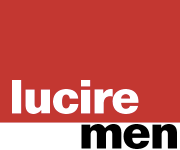On January 24, the US will vote to pass internet censorship, despite the opposition of the majority of American citizens, with the Protect-IP Act (PIPA) in the Senate and the Stop Online Piracy Act (SOPA) in Congress.
It’s little wonder that many Americans hold their Congress in such low esteem—when their Representatives do nothing that their title requires of them.
It stifles the First Amendment: everyday Americans who are engaging in free speech who aren’t infringing copyright might still find their websites taken down.
Ever film something innocently on your cellphone that has some music in the background? You could be found guilty, too—and face up to five years in prison.
Lawmakers don’t get it: the US joins Iran, China and North Korea
Why should a publication HQed in New Zealand care? It affects non-American websites, too, because it potentially blocks us from being seen by the American public. If you publish in English, there’s a fairly good chance the largest number of your readers will be American. If you have a site e-tailing products, you could well have a lot of US buyers.
Already, New Zealand has seen amendments to our Copyright Act that have come thanks to pressure from American lobbyists. Amendments which already saw the most ridiculous debates in Parliament where one MP equated the internet to the fictional Skynet of the Terminator films. Amendments which our Prime Minister was against before he was for. In both major parties’ quest to appease foreign groups ahead of the voter, “guilt by accusation” is now part of New Zealand law.
While President Obama has come out against the bills—though the White House’s words have been vague—this is no time to be complacent. The copyright amendments resurfaced in New Zealand in largely the same form. Americans need to keep the pressure on their politicians to express how they all feel.
Right now, American lawmakers want to put the entertainment lobby ahead of their own voters, by seeking to pass legislation that puts the US on the same playing-field as Iran, China and North Korea.
We believe in a fair go
We’re not against the idea of copyright, at least not the form that existed when we first started in the publishing business. In fact, we rely on copyright as our means of protecting our and our contributors’ authorship. But we are against this bill in the US.
Copyright disputes should happen with due process. While we find ourselves on the side of the complainant in most cases, we believe that those who infringe copyright should have an opportunity to remove affected works, or offer an explanation. We believe in the common law right that there is a presumption of innocence. We believe in a world where people have a fair and equal access to justice.
However, this bill goes further. A mere accusation of an infringing link posted by users can block a website to Americans.
Lawmakers have defended the bill by saying it protects copyright, but it won’t. Those who still want to share copyrighted content will do so—simply by typing the IP address of the site into their browsers.
The laws can remove any defence an innocent web publisher might have. Governments and corporations can potentially take down any website, creating new liabilities on the internet. As this is one of the areas of growth in many countries, the US included, it has the potential to harm economies.
Act now: it’s that important
You can read more here: it’s a simple guide to the proposed laws, explained far better than I could. The SOPA Strike website also has a good summary.
We’re urging the 38 per cent of our readers in the US to stand up for your rights. Write to your local Representative or Senator, and let them know that you do not support these bills. If you use the internet, this will affect you. If you have never involved yourself in the passing of a bill before, this is important enough to warrant your attention for the first time.—Jack Yan, Publisher









Leave a Reply